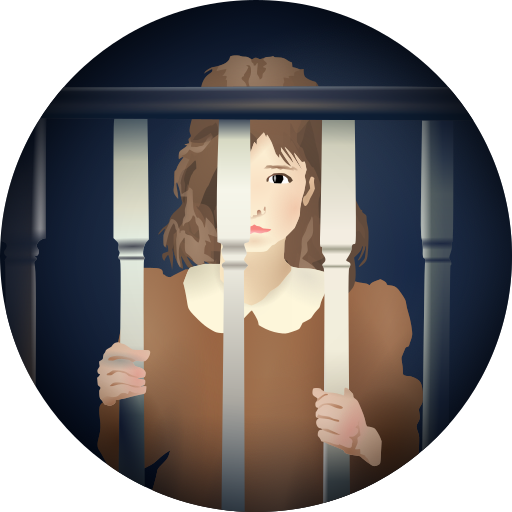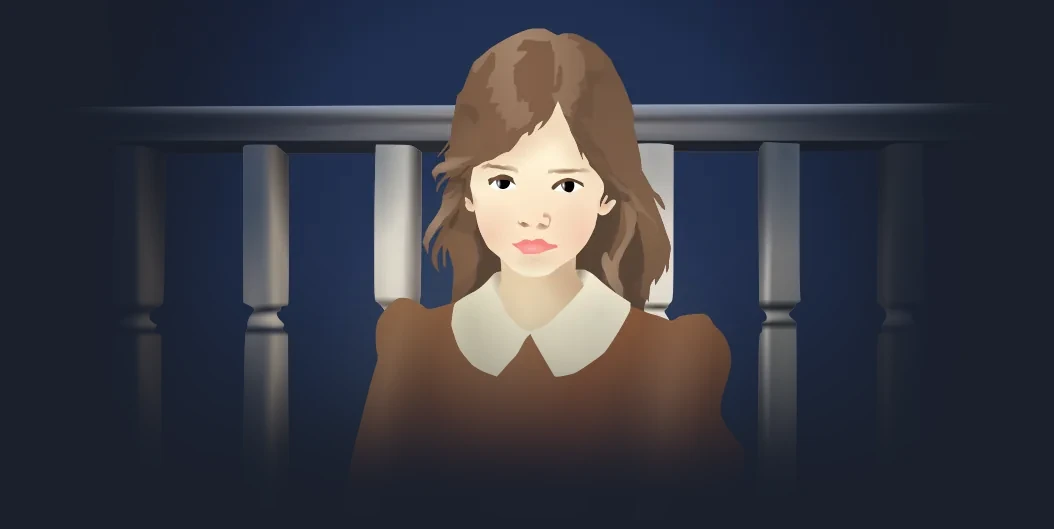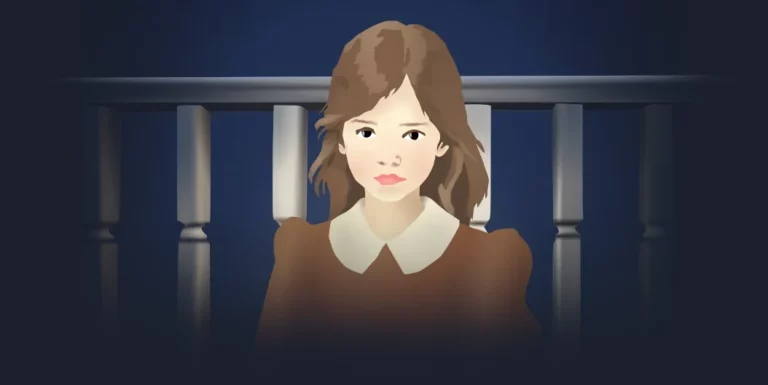Chapter I.X
Vitaly Ivolginsky
Always Visible (Another Prayer for the Dying Horror Genre)
First Act — Tempo De Construção Novamente
Chapter I.X
The weather was beautiful – as if there had been no rain last night. Only the almost dry puddles served as a reminder of this natural phenomenon. The view was complimented by children running along the sidewalks, ladies strolling, men walking importantly… Galbraith decided, as always, to keep himself busy looking at the signs – for some reason this gave him special pleasure. Maybe it was due to the fact that in the place near Gloucester, where he spent his childhood, he never saw shop windows or advertisements – for the shops he visited there were modest tents standing in the open air. At least that’s how it was in the sixties of the twentieth century – what was happening in his homeland now, the inspector could not know due to many factors.
Galbraith was attracted by the sign of a small pastry shop nestled next to The Faux Museum. There was a small sign on the glass that said “Closed” and some kind of telephone number circled in red pencil. But this was not what attracted the attention of the police inspector, but something completely different. There was a pink sign above the door, on which to the right of a beautifully depicted cupcake and a tall glass was written in large block letters “Beverages & Deserts”. Galbraith rubbed his eyes – no, he was not mistaken – in the word “Dessert” the third letter for some reason went to the very end.
Apparently, the owner of this pastry shop was an immigrant from behind the Iron Curtain, where is this word actually spelled with one “S”, but Galbraith did not have time to finish his thought, because he, not noticing the curb, tripped over it. Another second, and he, having lost his balance, would have flown down onto the sidewalk wet from yesterday’s rain. But he was lucky – someone’s strong hands managed to catch him. He saw above him an elderly tanned face with a black moustache.
“So, did you bent at such an early hour?”, the man asked him with a strange accent.
The mustachioed saviour put him on his feet and busily looked at the inspector.
“No-no, I just was staring at that sign”, Galbraith said embarrassedly.
“I know you Americans, it is the morning, the drinking”, the man answered calmly, stretching.
The inspector wanted to answer that he was from England, but decided not to be offended by trifles.
“Well, where are you from?”, he asked this man a question.
He wasn’t sure if he really wanted to know, but don’t really run away from here…
“I? Ich bin Deutscher!”, the man proudly blurted out in response.
So that’s what kind of accent he had, Galbraith realized. He raised his head – it turned out that his savior was standing at a thick wooden door, above which hung a sign “Onkel Körble Lichtspielsalon”. The last word vaguely reminded him of his native English “movie theater”.
“Are they showing a movie here?”, Galbraith nodded at the inscription.
His interlocutor seemed to be just waiting for this passerby to ask him about it. The German’s huge lips stretched into a smile.
“How else? For German immigrants, onkel Korble founded a small cinema here two years ago”.
The inspector thought doubtfully about what kind of cinema there could be in a room that had clearly previously housed a small store, but he decided not to show his mind.
“And what films are shown here?”, he asked.
“In Deutsch, of course. However, if you don’t know our language at all, this is not a problem”.
“Can I come to the session?”, Galbraith began to be overcome by curiosity.
“You’re just in time, last seat left”.
“All right, then I’m all in”.
Galbraith gave this German some money – as much as the ticket cost – and, opening the heavy door, entered a small but spacious hall. The decoration of this room alternated between wood and brick, and it seemed to the inspector who entered that the only thing missing to complete the ambience was stretched skins and other hunting trophies that could be hung all over the walls. However, signs of modern American life were also present in this dimly lit establishment – in the farthest corner there was a white canvas on a thick iron tripod, obviously it served as a screen. There were four rows of chairs in front of him. There were twenty seats in total, of which only one was free – ironically, it was located closest to the exit.
The contingent that gathered in this low-ceilinged room seemed to consist exclusively of lean, middle-aged men with short black hair. More than half of them had a thin black moustache, like the usher standing at the exit. Galbraith involuntarily caught himself thinking that he was invited to this place not least because he himself had a short haircut and a moustache. It might well be possible that the usher had a liking for people of other nations who were in some way similar to his compatriots. While waiting for the film to be shown, the audience quietly talked to each other. The inspector, sitting down on a chair with a high carved back and a soft seat, listened to their conversation. Of course, he did not hear a single word of English – all those gathered, as the usher warned him, were Germans who, for some purpose, immigrated from their historical homeland to America, Das gelobte Land.
Soon a click was heard above the heads of those gathered – apparently, a projector hidden somewhere under the ceiling began its work. Galbraith, having made himself comfortable on this chair, not the most suitable for watching a movie, fixed his eyes on the screen and from the very first frame found himself captivated by the mesmerizing spectacle. It was possible to say with confidence that onkel Korble – who, according to the ticket taker, founded this small cinema – did not skimp on ensuring that at the end of the session the audience, no matter how much they wanted, would not be able to forget this moving-picture show.
From the very first frames the film promised something very mysterious and unusual – in the middle of the red desert terrain, which strongly reminded Galbraith of the views of Glen Canyon, a horseman rode. There was one detail in his appearance that immediately caught the inspector’s eye – this young man had gray hair that reached his shoulders. The operator’s camera slowly changed angles as the man continued to make his way through the red sands.
The image was not particularly saturated, the screen flickered often, because of which Galbraith immediately realized that onkel Korble, who opened this establishment, simply played smuggled German Video Home System’s tapes here. Being a policeman, he could easily charge the owner of the establishment with illegally showing films, but firstly, today was his day off, and secondly, he was so captivated by what was happening on the screen that he forgot to think about his responsibilities.
Meanwhile, the film continued. A short man, dressed in tattered rags, joined the gray-haired horseman. Galbraith could not understand a single word of the dialogue that the characters were conducting among themselves, but there was no particular need for this. Soon these two entered some village, and guards appeared in the frame, dressed in some kind of ridiculous armour, as if made of cardboard. The long-haired man rebuffed them, and then suddenly there was such a sudden change of frame (accompanied by a loud stinger of synthesizer keys) that the inspector involuntarily shuddered in his chair. The red deserts were replaced by a view of black space, in which an iron octahedron with precise rows of dots symbolizing portholes on all surfaces slowly rotated between the white points of faces. Curious plagiarism from mister Lucas, flashed through Galbraith’s head. Then the desert views returned again – accompanied by a woman’s voice-over, the same long-haired man drove through incredibly squalid streets, where ugly clay statues stood.
Then the action moved indoors, and now the cameraman generously filmed the interiors, which, according to the director’s idea, were apparently supposed to symbolize a medieval castle, but looked more like some kind of garbage dump. Ugly, disgusting people of both sexes moved among the yellowish stones, wooden posts and torn rags… Almost all the men had long gray hair, despite the fact that there were practically no old men among the extras – apparently, Galbraith thought, the actors were simply wearing wigs. Perhaps the only characters among this rabble who were more or less like normal people were the monks – they were all perfectly bald, wearing black robes, which in one short scene showed them running around a stone hall. According to the plot, apparently, they were looking for some manuscripts.
Galbraith didn’t really understand what was happening on the screen. It wasn’t just that he didn’t know German – it was difficult to simply understand what was going on in this film incarnation of Sodom and Gomorrah. Some half-naked women, loud, frail men – the inspector involuntarily realized that the only normal one among all the characters was that young long-haired knight who was introduced at the very beginning. Although, sometimes the action was transferred to a completely different place – as if the interior of a spaceship. There, next to the huge screen, which, as Galbraith understood, showed the view from the eyes of the protagonist, people dressed in long white robes with short hair walked. The actors playing them behaved somehow arrogantly – as if the director specifically wanted to create the impression that everyone in space was so perfect, but on Earth, on the contrary, they were dirty freaks. The inspector thought so because he thought that the main action takes place in the Middle Ages – this would at least be logical.
Among all the actors who were involved in this film, the only person who was known to Galbraith was the one and only Werner Herzog. His character, dressed in dirty rags, was brought out of prison by that long-haired knight, but his screen time came to an end rather quickly – when Werner Herzog started shouting something at the camera with expression, a guard with a spear ran up to him from behind and the eminent actor fell to his knees as if knocked down. Galbraith even felt a little offended – after all, he was the only famous actor, but he was given such a tiny role…
Then the director showed the audience the protagonist’s home life – in addition to a strange room with white walls, which apparently was some kind of laboratory, In the house of a long-haired knight there lived a boorish boy and a red-haired woman with a pretty face dressed in a dirty dress. For some reason, Galbraith immediately realized that she was the love interest of the main character. Then came even stranger shots – a long-haired knight came into some cave, where, pulling off his wig – without which the actor who played him looked somehow pathetic – waited until a helicopter painted in strange colours landed nearby. Lord, the inspector thought, what was going on in the director’s head when he made decisions about what to insert into his film…
Then the environment of faceless characters was slightly diluted by a mustachioed black-haired man with a rough voice and a long sword. Galbraith involuntarily admired how this warrior started a fight in some tavern, and then began to drink together with the protagonist. True, then a rather vulgar scene followed, where that lady with a pretty face was roughly stripped on camera – the inspector involuntarily looked away when the cameraman began generously showing the audience her naked body. The fact is that Galbraith always believed that cinema is art, food for the mind, which should not indulge the base instincts of the audience…
Then the screen showed how the protagonist gets into a helicopter and soars up. The scene of his flight over the red sands was remembered by the inspector as the embodiment of the brutality of the absurd. It was even funnier when the hero had to throw himself out of this flying colossus, which did not fail to explode graphically right in the air. Galbraith thought that this was probably a response to Hollywood – they say, while you blow up unfortunate cars on camera in your films, in our Germany we blow up entire helicopters! True, it was clear that the fire of the explosion was simply superimposed on the frame, but this was a problem for the special effects masters.
Then there was a rather boring scene where the long-haired man and his girlfriend began to copulate. Thank God the director came up with an original move – this moment was demonstrated on the screen of a spaceship with a filter somewhat similar to the vision of the main villain from the hottest blockbuster of 1987. Yes, Galbraith thought, the creators of this film turned on their imagination when borrowing techniques from foreign cinema… For some reason, the inspector was even pleased when the protagonist’s beloved was captured by the guards. Maybe because the medieval instruments of torture shown during this scene shocked his imagination, or maybe simply because he wanted the film to no longer have erotic moments with this lady…
The ending of the film was consistent with what happened on the screen before it. First, the villain – a small, dry old man – with one swing of his sword, cut off the head of a mustachioed warrior already known to the audience. Then, when he climbed the tower, the same tramp from the beginning of the film began to shoot at him from a blaster. After the old man fell down in a puff of white smoke, the tramp began to shoot everyone who stood around him. The actor was apparently told to feel like a mad monkey who was given a firearm in his hands. Then suddenly an octagonal spaceship began to descend from the sky, and the entire crowd began to theatrically fall to the ground – apparently, according to the plot, this should have meant that they were drugged with sleeping gas. People in white robes took the long-haired knight onto the ship, and the woman who led them gave her bracelet to the protagonist’s beloved.
It was strange for Galbraith to look at all this bacchanalia, sitting on an uncomfortable wooden chair in a dark room, where besides him there were nineteen more foreigners smelling of sweat and cigarettes. But when the final credits began to roll on the screen, he involuntarily remained sitting in place while everyone else, briefly exchanging impressions, began to leave the hall. Apparently, it was in the song – very beautiful, slightly naive young vocals sounded under beautiful piano chords, and the inspector was surprised by the fact that the text was not in German, but in English.
The song was about a certain man who had to live in a strange empire and play the role of Lord God. As the refrain sang, the latter was not an easy, but since the fire still burns, why not give yourself a chance… Galbraith understood that he shouldn’t delve too deeply into the meaning of the song, the main task of which was to be the musical background for the final credits, but the fact that it contained English words could not help but touch him in this place saturated with the German spirit…


